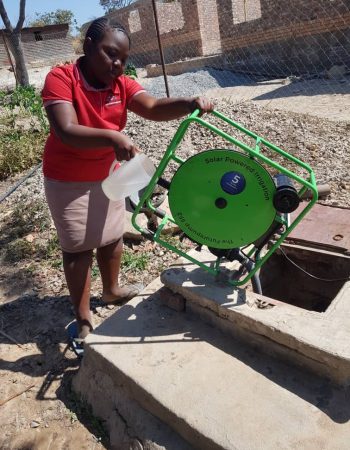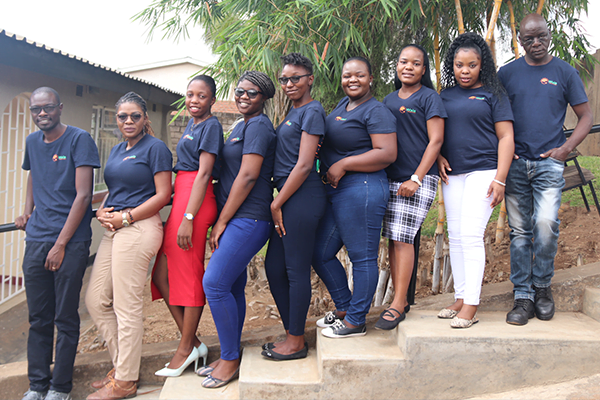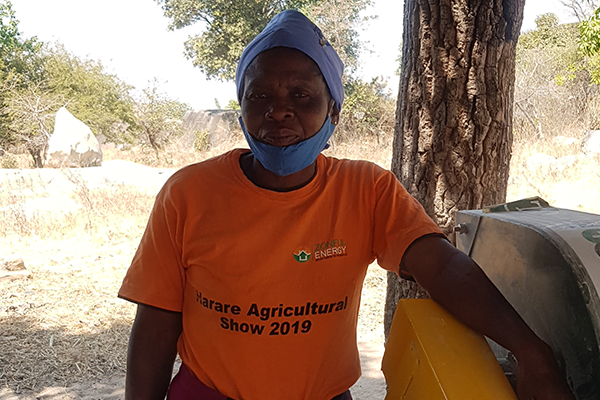
Stephen Gozho and his wife Tatenda live with their three children in Zimbabwe. They bought the Celfre solar water pump to farm crops for both personal consumption and sale, such as tomatoes, covo (African kale), rapeseed, and cabbage.
Before buying the Celfre pump, Tatenda used a bucket and a rope to draw water from the well. It was tiring manual labour. The water would then be mainly for household use, such as cooking and drinking. Buying the pump provided water for gardening and they no longer need to spend money to buy vegetables.
The water supplied by the pump is also cleaner than water extracted manually, which is healthier for drinking. The pump decreases the risk of water contamination. This was particularly helpful during the pandemic. The pump provided such positive outcomes that many neighbours and passers-by inquired about it and were interested in getting one of their own. The pump is also benefiting many of their friends and family who are getting free water and vegetables.
Louise Nkomo works at an NGO called Thabani that operates in Matabeleland, Zimbabwe. The NGO’s focus is rural water supply development and rural agricultural systems.
Thabani bought a Celfre solar water pump for farmers to work a large piece of land. They learned the pump is best suited for small irrigation and use 2 pumps to cover 0.5 hectares. Thabani is pleased that the pump is simple to operate and the instructions for operation, service and maintenance are straightforward.
The farmers spend fewer hours watering their crops and are now able to do other activities and projects. Some are working as tailors.
The Celfre pumps are used to farm vegetables such as kale, chomolia, tomatoes, carrots, maize and pumpkins. The crops are sold in the local community to grocery shops, schools, and hospitals. Before the solar water pumps, the farmers relied on a communal fuel-powered irrigation systems. The fuel, maintenance and repair costs were high and the farmers were unhappy because no one was held accountable if something went wrong. With the solar pump, they save on fuel costs and each unti is used by a much smaller number of people. The solar water pumps have made their lives easier. The farmers would like to get pumps for their own backyards to grow crops for personal consumption
Finding Your Life Mission Closer to Home
Profile of Priscilla Sani-Chimwele, founder & CEO of Wala Clean Energy in Malawi...
Solar Lighting Brings Safety and Productivity
Zonful Energy's Customers in Zimbabwe emphasise improved safety and productivity...




